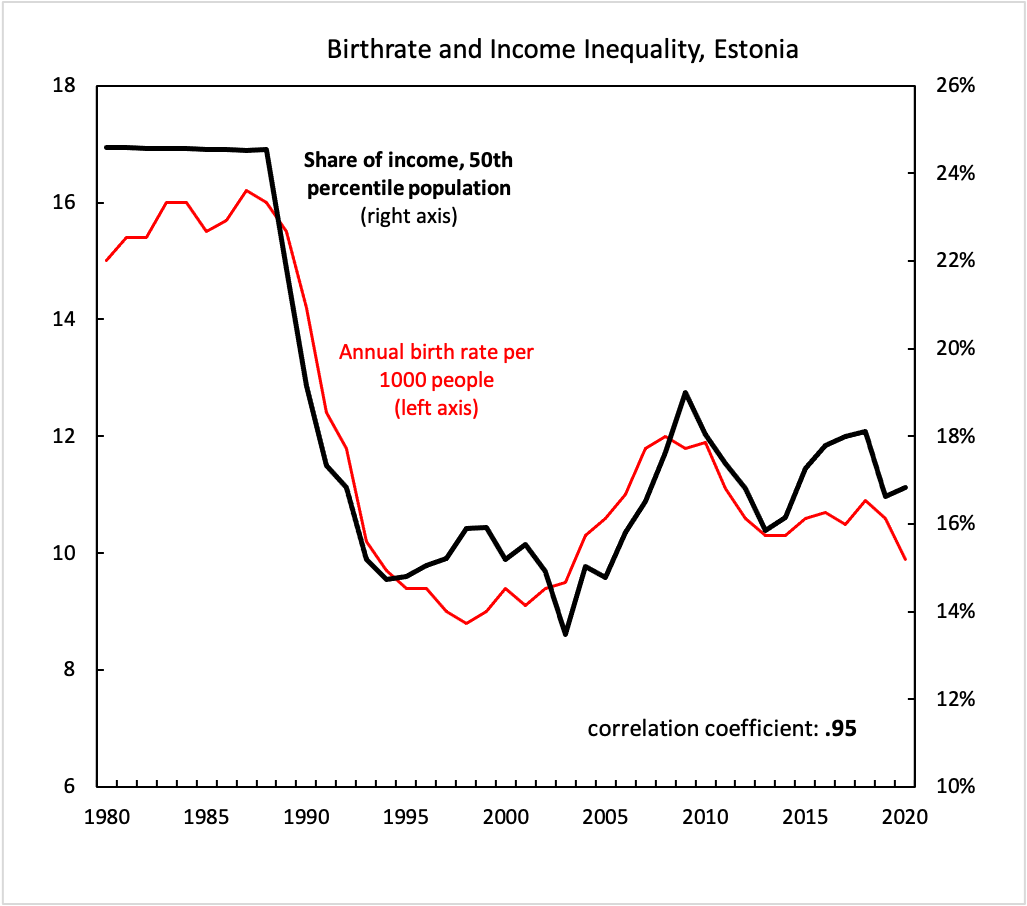Home › Forum › Political Economy › Is capitalism suicidal? (A note on population aging) › Reply To: Is capitalism suicidal? (A note on population aging)
Brian, your question of what is causing changes in the fertility rate is an interesting one. I think you’re right that many factors are at work, and that at least some important ones can be traced to capitalist dynamics. Some other factors to consider are that (1) declining infant mortality rates mean that one reason for having many kids (i.e., only some survive) is no longer as significant; and (2) increasing urbanization/decreasing subsistence farming means fewer children are now needed to physically maintain farmland.
The relationship between social reproduction and capitalism, and especially the ‘contradiction’ of the tendency for capitalism to destroy its own social foundation, is an old one in political economy (e.g., Karl Polanyi), and especially in Marxist and Marxist-feminist literature.
In CasP theory, this ‘contradiction’ is instead framed as the notion that sabotage has a nonlinear relationship to profit – too much sabotage and the society over which capital dominates can collapse. However, the existence of this nonlinear relationship doesn’t mean that capitalism is destined to self-destruct. As Jonathan pointed out above, one of the strengths of the capitalist social order appears to be its flexibility and adaptability.
I did some looking at birth rate data in relation to income inequality (through the World Inequality Database) and I found some interesting leads. Here is the crude birth rate per 1000 people for Estonia, plotted alongside the income share of the bottom 50th percentile of the population:

I tested the comparison with a few other countries; Poland showed the same tight correlation; for Mexico, the correlation was weaker but still significant; and South Korea was impossible to compare because the inequality data was incomplete.
If there is any truth to this correlation, I would guess that changes in differential social power affect the birth rate and not the other way around, confirming your own hypothesis.
The question then becomes, how are capitalists adapting to the declining birth rates? In Canada, one central adaptation is increased immigration, which started in the 1960s and 70s and was a major factor in the shift of the Canadian national ‘identity’ from mono-cultural Anglo (of course excluding French-Canada and Indigenous Peoples) to our current ‘multicultural mosaic identity’. From the start, the need for more labour was a driving factor in the shift in immigration policy. Here’s the BBC from just last November:
“Immigration already accounts for practically all of the country’s labour force growth, and by 2032, it is expected to account for all of the country’s population growth too, according to a government news release. Earlier this month, the government announced that by 2025, they hope to bring in 500,000 new immigrants a year, up about 25% from 2021 numbers.”
https://www.bbc.com/news/world-us-canada-63643912
This adaptation is not without obstacles. Immigration is politically unpopular among large parts of the working class, as they perceive new immigrants as competition, and as being accepting of worse working conditions and lower pay. I’m not saying this is true of immigrants, but this is clearly a dominant perception (e.g., it was a major driver of Brexit voting). I wonder if the immigration question in South Korea will begin to play a bigger role at some point due to these population dynamics.
